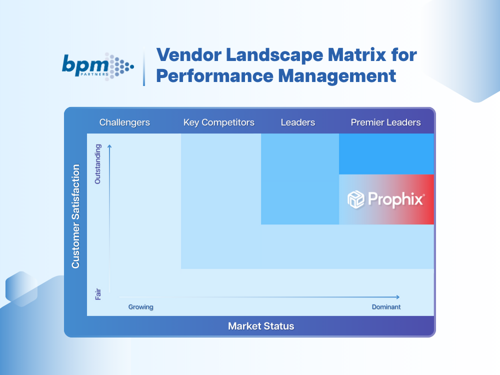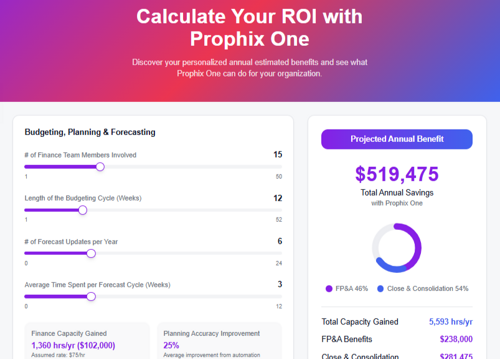Download Analyst Report
Why is ESG important for businesses and finance?
ESG reporting evaluates how a company’s operations and strategies affect the environment, address social responsibilities, and maintain ethical governance practices.
February 11, 2025In 2025, ESG is more than a trend—it’s a necessity. And as consumers and investors increasingly value sustainability and ethical practices, ESG has become a cornerstone of modern corporate strategy.
What is ESG?
ESG, which stands for Environmental, Social, and Governance, is a framework used by businesses, investors, and organizations to assess their impact on the world beyond their financial performance. ESG reporting evaluates how a company’s operations and strategies affect the environment, address social responsibilities, and maintain ethical governance practices.
Where did ESG come from?
The concept of ESG emerged in the early 2000s, but its roots can be traced back to the broader sustainability and corporate social responsibility (CSR) movements of the late 20th century. In 1983, the United Nations formed the Bruntland Commission to explore how human activity affects the environment and policies. Their 1987 report brought sustainable development to global attention.
Later on, the United Nations’ Principles for Responsible Investment (PRI) from 2006, provided a formal framework for integrating ESG factors into investment decisions. Since then, ESG has grown into a global priority for businesses and investors alike, driven by societal demands for transparency, sustainability, and ethical leadership.
Environmental criteria
Environmental criteria assess a company’s impact on the planet. This includes:
- Carbon emissions and efforts to achieve net-zero goals.
- Waste management and pollution control.
- Sustainable resource usage, including water and energy efficiency.
- Climate change adaptation strategies.
By addressing these areas, businesses can reduce their ecological footprint and contribute to a healthier, more sustainable future.
Social criteria
Social criteria focus on a company’s relationships with its employees, customers, and communities. Key factors include:
- Employee well-being, diversity, and inclusion.
- Labor practices and supply chain ethics.
- Community engagement and social impact initiatives.
- Product safety and customer satisfaction.
Socially responsible practices help companies foster trust and loyalty, both internally and externally.
Governance criteria
Governance criteria evaluate the ethical practices and accountability of a company’s leadership. This includes:
- Board diversity and independence.
- Executive compensation and alignment with performance.
- Anti-corruption measures and transparency.
- Shareholder rights and corporate policies.
Strong governance ensures that companies operate with integrity and accountability, protecting the interests of all stakeholders.
What is a corporate ESG strategy?
A corporate ESG strategy is a comprehensive plan that integrates environmental, social, and governance considerations into a company’s core business operations and long-term goals. This strategy typically includes setting measurable ESG goals, implementing sustainable practices, and reporting on progress to stakeholders. Companies with robust ESG strategies can build resilience, reduce risks, and enhance their reputation.
What is ESG investing?
ESG investing, also known as sustainable or responsible investing, involves incorporating ESG factors into investment decisions. Investors evaluate companies based on their ESG performance alongside traditional financial metrics to identify opportunities that align with their values and long-term objectives.
Who does ESG investing?
ESG investing attracts a diverse range of participants, including:
- Institutional investors like pension funds, asset managers, and mutual funds.
- Individual investors seeking ethical and sustainable investment options.
- Governments and nonprofit organizations advocating for responsible investment practices.
What is the purpose of ESG investing?
The primary purpose of ESG investing is to generate sustainable financial returns while promoting positive environmental and social outcomes. By prioritizing companies with strong ESG performance, investors can:
- Mitigate risks associated with poor corporate practices.
- Align investments with personal or organizational values.
- Drive change by encouraging businesses to adopt more sustainable and ethical practices.
Does ESG investing actually work?
The effectiveness of ESG investing is often debated. While many studies, such as those by Wharton and Harvard Business Review (HBR), suggest that ESG-focused portfolios can deliver competitive returns, challenges remain:
- Lack of standardization in ESG ratings complicates impact measurement.
- Regional differences in ESG performance create variability in outcomes.
However, evidence from institutions like MIT Sloan and Reuters indicates that environmental and governance (E and G) criteria often contribute to profitability, even as social (S) outcomes lag behind.
Why is an ESG strategy important for businesses?
Risk management and adaptation are important to investors
Investors increasingly prioritize companies with proactive risk management strategies. An ESG strategy helps businesses anticipate and mitigate risks, such as regulatory changes, supply chain disruptions, and reputational damage. These risks, if unaddressed, can lead to financial losses, operational interruptions, and a tarnished brand image. By integrating ESG into their risk management frameworks, companies demonstrate their resilience and ability to adapt to evolving market and environmental challenges. This proactive approach not only reassures investors but also positions the business as a forward-thinking and sustainable enterprise.
Lack of ESG can hurt a company's value
Companies without ESG strategies risk compromising investor confidence, customer loyalty, and market competitiveness. Poor ESG performance can lead to regulatory penalties, public backlash, and diminished brand equity. Lack of ESG can, furthermore, result in inability to foresee and effectively address risks to operations leading to financial loss and poor business performance.
ESG is a proactive risk management strategy that helps a company's long-term sustainability
Beyond mitigating risks, ESG strategies enable businesses to build resilience and adapt to evolving market demands. By focusing on sustainability and ethical practices, companies can ensure their long-term viability.

Advantages of ESG reporting for businesses
Improves financial performance
Studies consistently show that companies with strong ESG performance often achieve better financial results. For instance, implementing energy-efficient technologies and reducing waste lowers operational costs. Ethical governance practices, such as transparency in financial reporting, build investor confidence and attract funding. Additionally, businesses that prioritize sustainability are better equipped to adapt to market shifts and regulatory changes, ensuring consistent financial stability over the long term.
Attracts investors and builds trust
Transparent ESG reporting plays a critical role in demonstrating a company’s commitment to ethical and sustainable practices. By openly sharing ESG initiatives and outcomes, businesses build credibility and foster trust among investors. This transparency reassures investors that the company is proactively managing risks and adhering to responsible practices, which can enhance its reputation in the market. Moreover, clear and accessible ESG data enables investors to make informed decisions aligned with their values and long-term financial goals.
Builds trust with the public and new talent
Companies with robust ESG strategies enhance their reputation, fostering loyalty among customers and employees. Younger generations, in particular, value sustainability and ethical practices when choosing employers and brands. For example, Patagonia’s commitment to environmental activism has resonated strongly with environmentally conscious consumers, boosting customer loyalty. Similarly, Unilever’s focus on sustainable sourcing and social responsibility has made it a preferred employer among young professionals who prioritize value-driven workplaces.
Improves operational sustainability
ESG reporting helps businesses identify inefficiencies and optimize operations in many different ways. For example, detailed analyses of energy consumption may reveal opportunities to switch to renewable energy sources, reducing costs and environmental impact. Similarly, waste audits can uncover areas to streamline production processes, cutting excess and improving profitability. Companies tracking their carbon footprint resulting from business travel may decide to make changes to policy reducing flying, and therefore, overall business expenses, and so forth.
Discover the 11 best ESG software platforms for reporting
Greenwashing: Criticisms of ESG Strategies and Reporting
Greenwashing is a play on the term ‘whitewashing’ and refers to the practice of using misleading ESG disclosures to portray a company’s product as more environmentally friendly than it actually is. Over the years, there have been many scandals about brands practicing greenwashing. Companies of all industries have been making unsubstantiated or outright deceitful claims about their practices ranging from clothing manufacturers (H&M, Zara, Decathlon) to financial services companies (Goldman Sachs, BNY Mellon), some of them getting substantial fines as a result. None more striking than the VW scandal regarding the implementation of software that falsified data and helped evade emissions tests on its vehicles resulting in a USD 34.7 billion fine.
Lack of standardization makes the true impact of ESG difficult to measure
The absence of consistent ESG reporting standards leads to skepticism about the accuracy and reliability of ESG claims. Without universal benchmarks, companies use varying methodologies to assess and report their ESG performance, creating confusion and reducing comparability. This lack of standardization makes it challenging for investors and stakeholders to evaluate a company’s true commitment to sustainability. Establishing clear and uniform guidelines is essential to improve transparency and trust in ESG metrics.
Skepticism towards corporate ESG Is growing
Some critics argue that ESG strategies prioritize optics over impact, undermining trust in the framework. Instances of greenwashing, where companies exaggerate or falsify their ESG achievements, have fueled this skepticism. Critics also highlight the gap between stated ESG goals and measurable outcomes, questioning whether businesses are genuinely committed to sustainability. Addressing these concerns requires rigorous oversight, transparent reporting, and a genuine alignment of ESG practices with corporate values.
The actual impact of ESG practices is difficult to measure
Evidence from sources like Wharton and HBR highlights challenges in quantifying the real-world impact of ESG initiatives. The lack of standardized metrics and the reliance on self-reported data complicate efforts to assess ESG effectiveness. However, studies from institutions like MIT Sloan suggest that developing clearer, more consistent evaluation criteria could reveal the profitability and societal benefits of ESG initiatives. Greater collaboration among rating agencies, regulators, and businesses is key to overcoming these measurement challenges.
Evidence shows that the E and G of ESG are profitable, but the S isn't
According to Reuters, environmental and governance practices often lead to financial gains, while social outcomes remain harder to quantify and monetize. Companies that invest in energy efficiency or implement strong governance structures frequently see cost savings and enhanced investor confidence. In contrast, social initiatives like workforce diversity or community engagement, while valuable, may not directly translate to immediate financial returns.
ESG returns differ by region, making the impact of ESG inconclusive
Regional variations in ESG implementation and outcomes create disparities in effectiveness, as highlighted by Reuters. In some regions, regulatory support and consumer demand for sustainability drive significant financial benefits for ESG-focused companies. Conversely, in markets with less stringent regulations or lower public awareness, the impact of ESG initiatives may be less pronounced. These differences illustrate the importance of tailoring ESG strategies to regional contexts while advocating for global standards.
Some groups say ESG investing isn't designed to save the planet
Critics argue that current ESG frameworks fall short of addressing global challenges, as noted in HBR. They contend that ESG investing often focuses more on financial returns than on creating meaningful environmental and social change. For instance, investments in "green" technologies may prioritize profitability over sustainability, raising questions about their long-term impact. To address these criticisms, ESG frameworks must balance financial goals with genuine contributions to global sustainability.
What's the evidence that ESG is important and impactful?
Companies that focus on ESG produce higher equity returns
Research consistently shows that companies focusing on ESG (Environmental, Social, and Governance) factors achieve better financial performance, particularly higher equity returns. Meta-analyses of over 2,200 studies reveal a positive correlation between ESG performance and corporate financial performance (CFP), with variations across regions and asset classes. While portfolios exhibit mixed results due to costs and risks, firm-level studies demonstrate a stronger positive ESG-CFP relationship. These findings underline the strategic value of ESG practices for long-term profitability and sustainable investing.
A strong ESG strategy creates value by attracting customers, reducing costs, and talent attraction
A strong ESG strategy helps companies differentiate themselves by appealing to customers who prioritize sustainability and ethical practices. Businesses that adopt energy-efficient technologies and sustainable supply chain practices often achieve significant cost savings, enhancing their profitability. Moreover, companies with well-executed ESG initiatives attract top talent, particularly among younger professionals who value purpose-driven organizations, creating a competitive advantage in the talent market.
Evidence clarified by non-standard ESG ratings shows ESG investing is profitable
A study evaluating ESG portfolio performance using data from six major rating agencies for firms in the U.S., Europe, and Japan (2014–2020), found significant excess returns for ESG portfolios in the U.S. and Japan. These findings demonstrate that despite inconsistencies in ESG scores, aggregated ESG ratings provide a meaningful signal for profitable portfolio construction.
The study by Lo and Zhang (2021) concludes that ESG investing can be profitable when nonstandard ESG ratings are clarified through aggregation methods. Their analysis of data from six ESG score providers across major markets (U.S., Europe, Japan) showed significant excess returns, particularly in the U.S. and Japan, and improved risk-adjusted returns.
FAQs about ESG importance
Is ESG just "woke capitalism"?
Not necessarily. While some view ESG as a trend, it provides tangible benefits like risk reduction, improved financial performance, and stakeholder trust.
What is ESG and why does it matter?
ESG matters because it aligns business practices with sustainability and ethics, driving long-term success and societal impact.
Why is ESG implementation important?
ESG implementation helps businesses mitigate risks, meet regulatory requirements, and attract investors and customers.
How many ESG rating agencies are there?
There are dozens of ESG rating agencies, including MSCI, Sustainalytics, and S&P Global, each with unique methodologies.
How is ESG beneficial to society?
ESG initiatives promote environmental preservation, social equity, and ethical governance, contributing to a better world.
Is ESG actually effective?
While effectiveness varies, evidence suggests that strong ESG strategies can drive financial and societal benefits.
Is ESG really sustainable?
When implemented thoughtfully, ESG practices can enhance long-term sustainability for businesses and communities.
Conclusion: Build your ESG strategy with Prophix
In 2025, ESG is more than a trend—it’s a necessity. With Prophix’s ESG software, you can develop a robust ESG strategy, simplify reporting, and ensure compliance while creating meaningful impact. Empower your business to embrace sustainability and build trust with stakeholders.
Learn more about how Prophix can help you implement and optimize your ESG strategy today!





